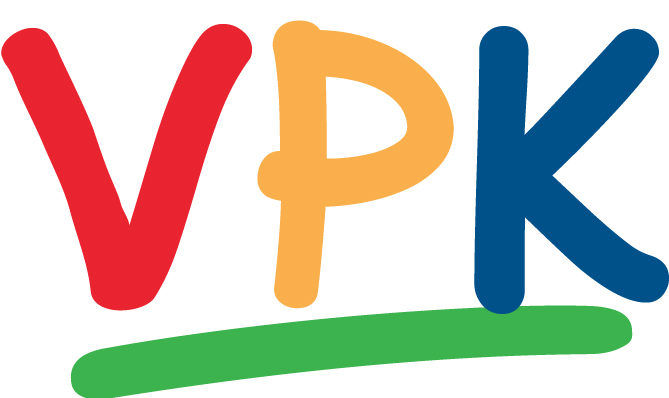Understanding the Renaissance STAR Early Literacy Assessment for VPK: A Teacher’s Guide
- Andrea Alvarez
- Sep 12, 2025
- 4 min read
Updated: Nov 22, 2025

As VPK teachers, one of our biggest responsibilities is preparing our students for kindergarten success. In Florida, one of the main tools used to measure school readiness is the Renaissance STAR Early Literacy assessment, also referred to as STAR FAST.
If you’re a new teacher or simply looking to better understand this assessment and how to support your students, this post will break down what it is, what it measures, and how you can intentionally prepare your little learners throughout the year.
What is the STAR FAST Assessment for VPK?
The STAR FAST is a computer-adaptive test given to VPK students in Florida. That means the test adjusts the difficulty of questions based on how the child is performing—making it unique to each student.
It is designed to measure early literacy and early numeracy skills that predict later success in kindergarten and beyond.
Key areas assessed include:
Phonological Awareness (rhyming, blending, segmenting sounds)
Alphabet Knowledge (recognizing and naming letters)
Concepts of Print (understanding how books and print work)
Vocabulary (understanding and using new words)
Comprehension (listening and understanding short passages)
Numbers and Operations (counting, comparing, recognizing numbers)
Why Is It Important?
The results of the STAR FAST help determine how well students are progressing toward kindergarten readiness. For schools and teachers, these scores provide insight into instructional strengths and areas where children may need more support.
How Teachers Can Prepare Children for Success
Sing rhyming songs and nursery rhymes.
Play games like “I Spy” using beginning sounds.
Practice clapping syllables in names and words.
Incorporate letter recognition games into circle time.
Use alphabet cards, puzzles, and songs daily.
Encourage children to recognize letters in their names and classmates’ names.
Read aloud daily and discuss new words in context.
Use thematic units to expose children to a variety of words.
Encourage children to talk about their ideas, feelings, and observations.
Model how to hold a book and track print left to right.
Invite students to find “where to start reading” on a page.
Point out punctuation marks and explain their meaning.
Ask questions before, during, and after read-alouds.
Encourage predictions (“What do you think will happen next?”).
Retell stories together using props or puppets.
Practice counting objects during snack, clean-up, and transitions.
Compare sets of objects using words like “more,” “less,” and “equal.”
Introduce number recognition with games and songs.
How Many Times a Year?
In Florida’s FAST program, the STAR Early Literacy assessment is administered three times a year:
Beginning of Year (BOY) – establishes a baseline
Middle of Year (MOY) – checks mid-year progress
End of Year (EOY) – measures growth and readiness for kindergarten
The scores fall on a unified scale from 200 to 1100, which allows teachers to track progress consistently across all three testing windows.
Making Preparation Part of Everyday Learning
Preparing for the STAR FAST doesn’t mean “teaching to the test.” Instead, it’s about embedding early literacy and math skills into your daily instruction so that children naturally build the foundation they need.
A structured curriculum can make this process smoother. For example, my 10-Month VPK Lesson Plan Bundle is designed to align with the skills measured on the STAR FAST. With weekly lesson plans, phonological awareness activities and math activities, teachers can confidently cover everything their students need for strong results—without the stress of piecing it together on their own.
Ready to Feel Confident with the STAR Early Literacy assessment and Save Hours of Planning?
Teaching VPK doesn’t have to feel overwhelming. With my 10-Month VPK Lesson Plan Bundle, you’ll get:
Engaging literacy, math, and theme-based activity suggestions
Built-in opportunities for CLASS-friendly interactions
A full year of lesson plans aligned to VPK standards
More time to focus on what matters most—your students
Start the year with everything you need at your fingertips—and walk into your next CLASS observation feeling confident and prepared!
The STAR Early Literacy assessment may feel overwhelming at first, but when you understand what it measures and weave those skills into everyday learning, it becomes less of a “test” and more of a celebration of your students’ growth. H by hi
With intentional practice, engaging lessons, and consistent exposure to early literacy and math concepts, your students will be set up for success—not just on the assessment, but in kindergarten and beyond.
How do the CLASS assessment and the STAR Early Literacy Work Together in VPK?
CLASS looks at teaching quality.→ Are teachers providing warm, structured, and effective instruction?
STAR looks at student outcomes.→ Are children actually learning the skills they need to be ready for kindergarten?
Together, they provide a complete picture of a VPK program’s success:
If STAR scores are low, CLASS results might show whether the issue is tied to instructional quality or engagement.
If CLASS scores are strong, STAR data can validate that high-quality interactions are leading to positive learning outcomes.
The state uses both assessments for accountability in VPK, meaning programs are evaluated not just on what students know but also on how teachers are teaching.
Learn more about the CLASS assessment here!
Grab this Free Poster to help you get ready for your upcoming CLASS assessment! Prepare! Prepare! Prepare!
Pro Tip for Teachers: Keep learning fun! Children perform their best when they are engaged, curious, and confident.
Happy Teaching!

.png)








Comments